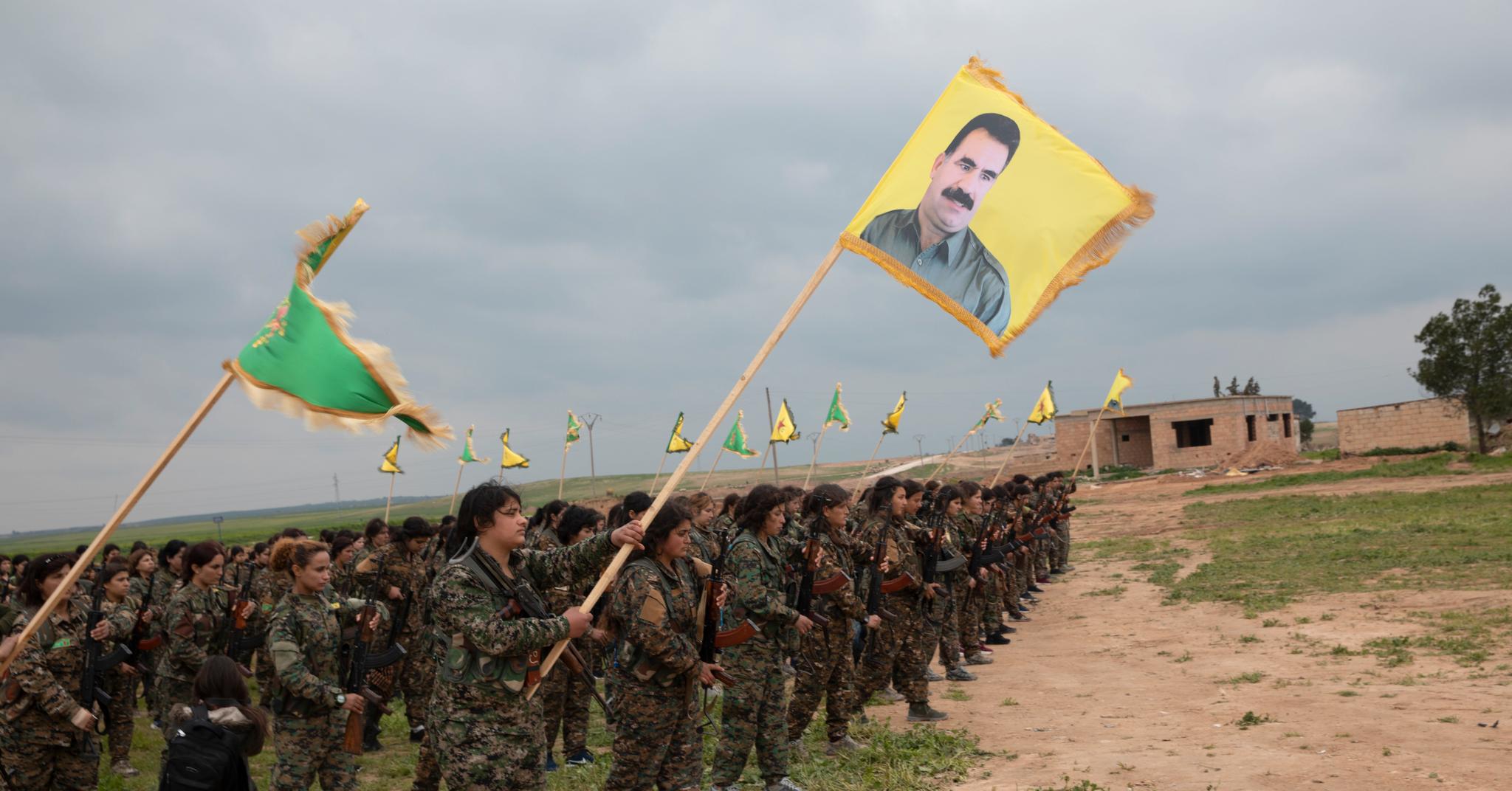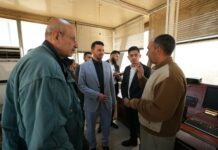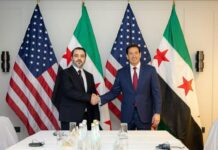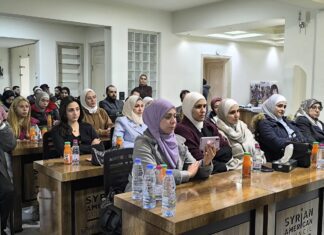
The ongoing political transition in Syria has placed renewed focus on the role of Kurdish-led forces in the country’s north, particularly the Syrian Democratic Forces (SDF) and the Democratic Union Party (PYD). While Kurdish representation is expected in the upcoming Syrian National Conference (SNC), the SDF’s refusal to integrate into the Syrian military and its ties to the Kurdistan Workers’ Party (PKK) remain major points of contention preventing its direct participation.
Exclusion from the Syrian National Conference
Hassan al-Daghim, spokesman for the Preparatory Committee for the SNC, confirmed that the SDF will not be invited to the conference unless it dissolves its military structures and submits to the authority of the Syrian Ministry of Defense. “As long as we are talking about weapons and militarization, they will not be present in the dialogue,” al-Daghim stated.
The committee emphasized that the conference is intended as a platform for political dialogue, not a forum for military groups. Negotiations between the Damascus-based government and the SDF have been ongoing, with the latter insisting on joining as a unified bloc rather than as individual recruits into the national army. However, Damascus maintains that all armed groups must disband and integrate into state institutions before participating in the conference.
The exclusion of the SDF has sparked criticism from Kurdish political factions such as the Kurdish National Council (KNC), which called for fair representation of Syria’s Kurdish population. “The formation of the preparatory committee should have reflected the reality of political and national pluralism in the country,” the council stated, warning that failing to include Kurdish voices could undermine the credibility of the conference.
The PKK Factor: Ideological & Operational Ties
A major obstacle to SDF participation remains its longstanding ties to the PKK, an internationally designated terrorist organization. The PKK’s influence over the PYD and SDF has been a source of concern for both the Syrian government and international actors.
Abdullah Ocalan, the PKK’s imprisoned leader, is expected to deliver a speech today, Feb 15, addressing the PKK’s regional strategy and its relationship with the PYD and SDF. This anticipated speech has heightened fears among Syrian Kurdish factions that internal divisions could escalate, further complicating the political landscape.
Mahmoud Habib, spokesperson for the Northern Democratic Forces—a faction within the SDF—denied that the organization operates under PKK command but acknowledged ideological similarities. “Abdullah Ocalan is a thinker and a man of principle, and many adopt his ideas. But adopting a philosophy does not mean adopting fieldwork in Turkey,” Habib said. He argued that the SDF is a Syrian force dedicated to national defense, not an extension of the PKK’s activities.
Despite such statements, the presence of PKK-linked cadres in Syria and the historical overlap between the PKK and the PYD complicate efforts to separate the two entities. The continued influence of Ocalan’s ideology on PYD leadership further reinforces Damascus’ position that the SDF must sever all ties with foreign militant groups before engaging in national dialogue.
Negotiations with Damascus & Kurdish Political Divisions
While the SDF remains excluded from the SNC, indirect negotiations with Damascus are ongoing. Habib indicated that discussions are proceeding away from media attention to ensure progress. He also suggested that placing SDF weapons under Syrian state control could prevent security vacuums, though full military integration remains a key sticking point.
Other Kurdish parties, such as the KNC, have pursued a different path by engaging directly with the new Syrian administration. The KNC recently withdrew from the opposition-linked National Coalition for Syrian Revolutionary and Opposition Forces, signaling a shift toward cooperation with Damascus. “There is a new phase ahead of us, and we will hold talks with the new administration to achieve the rights of the Kurdish people,” a KNC statement read.
Meanwhile, Saleh Muslim, a senior PYD figure, rejected the legitimacy of the SNC, stating that if SDF-linked political entities were not included, they would not recognize its outcomes. “Any Syrian conference that excludes the SDF or the Autonomous Administration will not be national and cohesive,” said Farhad Shami, director of the SDF’s media office.
Conditions for Inclusion
The ongoing debate over the SDF’s role in Syria’s future underscores the complex dynamics of the country’s political transition. While Kurdish participation in the Syrian National Conference is expected, the refusal of the SDF to dissolve its armed forces and fully integrate into the Syrian military remains the primary reason for its exclusion.
The PKK’s influence over Syrian Kurdish politics further complicates efforts to unify political representation. As long as the PYD and SDF maintain operational and ideological ties to the PKK, their inclusion in Syria’s national framework will remain a contested issue.
Despite these challenges, Kurdish political movements remain an integral part of Syria’s future. The pathway to their full participation in the country’s governance, however, will depend on meeting the conditions set by Damascus—namely, military integration, political independence from foreign militant organizations, and a commitment to national unity.








